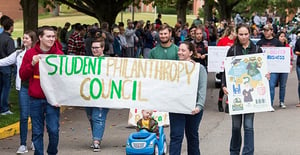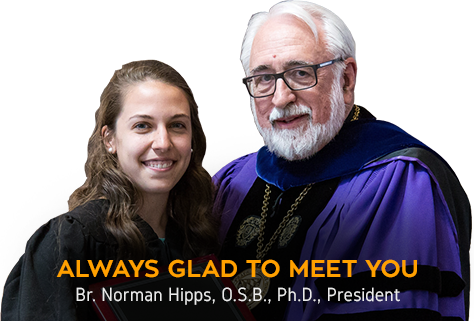Engaging in the tasks that are listed on a job description likely comes to mind when many people hear the term “job performance.” Yet, engaging in these tasks is only part of how to define successful performance in the workplace.
Another aspect of being a successful performer at work is engaging in organizational citizenship behaviors (OCBs for short). These are “voluntary” in that they are not listed on one’s job description, but organizations, coworkers and those individuals who perform them often benefit from these activities (LePine, Erez & Johnson, 2002).
OCBs include behaviors such as (Cha, Chang & Kim, 2014):
- Voice: speaking up and offering your perspective in a positive manner to improve the organization
- Civic virtue: volunteering, attending things that aren’t required, going the extra effort, etc.
- Boosterism: representing the organization in a positive way even when away from work
- Helping: assisting coworkers who have heavy workloads
- Courtesy: keeping coworkers informed about information that is important to them; sharing knowledge such as through mentoring, for example
- Sportsmanship: maintaining a positive attitude with coworkers

In my last blog, I talked about the importance of organizational culture. When all employees engage in the above types of behaviors, it’s easy to see how cultures can be improved. Furthermore, cultures that are positive foster these types of behaviors among their employees so that they possess a never-ending cycle: an organizational culture that has values related to engaging in OCBs will see their employees doing positive voluntary activities which, in turn, further improves the culture even more. Who wouldn’t want to work in an environment in which your colleagues engage in OCBs – and who, in turn, wouldn’t want to go the extra mile for an organization and coworkers who would go the extra mile for you?
Organizations, of course, get benefits from OCBs but, not surprisingly, the people engaging in OCBs also benefit themselves. Of course, I don’t advocate that self-benefit is the only reason that people should engage in OCBs. However, people who do engage in these behaviors could find that:
- They appear to be more likable to others (and thus may find themselves more influential or with more positive personal relationships).
- They feel an increase in self-esteem and satisfaction at engaging in positive voluntary behaviors.
- They receive promotions, higher status or pay increases more often than those who don’t engage in OCBs. After all, even though they are not listed on a job description, one would bet that the individual who voluntarily goes the extra mile will get a raise/promotion over someone who does not if they both perform equally well on the tasks explicitly listed on their job descriptions.

As a personal anecdote, I know that I’ve benefitted from displaying OCBs. In a previous job, shortly after I had switched industries and was working in a role vastly different than my previous jobs, I was nervous about my first performance evaluation. However, I made it a point to always keep my office door open, smile and say “hi” to anyone who passed by throughout my first year on the job (i.e., the OCB of “sportsmanship”). When the time of my performance evaluation came around, my supervisor barely mentioned the tasks listed on my job description in our discussion. Instead, she noted how everyone liked being around me and that I was a good addition to the organization. We concluded with her rating me with a perfect score and encouraging me to “keep up the good work”…all because I engaged in OCBs. We hardly discussed my performance of tasks that were stated on my formal job description.
 Workplace OCBs are not a whole lot different from OCBs that students can engage in while in college. I often see my students voluntarily engaging in voice, civic virtue, boosterism, helping, courtesy and sportsmanship. Doing so not only further improves SVC’s culture but it instills pride in me as their instructor to see that students make a voluntary effort to do things of benefit to others.
Workplace OCBs are not a whole lot different from OCBs that students can engage in while in college. I often see my students voluntarily engaging in voice, civic virtue, boosterism, helping, courtesy and sportsmanship. Doing so not only further improves SVC’s culture but it instills pride in me as their instructor to see that students make a voluntary effort to do things of benefit to others.
Yet, there may be some negatives to engaging in OCBs. For example, people who focus too much time and energy on OCBs could potentially run out of time to actually perform their primary job tasks listed on their job description, in essence not fulfilling many of their major job purposes. Furthermore, they could burn themselves out if they exert too much effort on OCBs while trying to juggle their primary job tasks.
What do you see as some other benefits (or negatives) of engaging in OCBs? Do you engage in OCBs and have you seen others at work engage in them? Let me know your thoughts below, email me at michael.urick@stvincent.edu or connect with me on social media (www.facebook.com/urickmj and www.linkedin.com/pub/michael-urick/a3/775/5b/).
Cha, J., Chang, Y. K., & Kim, T. Y. (2014). Person–organization fit on prosocial identity: Implications on employee outcomes. Journal of Business Ethics, 123(1), 57-69.
LePine, J. A., Erez, A., & Johnson, D. E. (2002). The nature and dimensionality of organizational citizenship behavior: A critical review and meta-analysis. Journal of Applied Psychology, 87(1), 52-65.


 中国学生
中国学生 Estudiantes
Estudiantes




